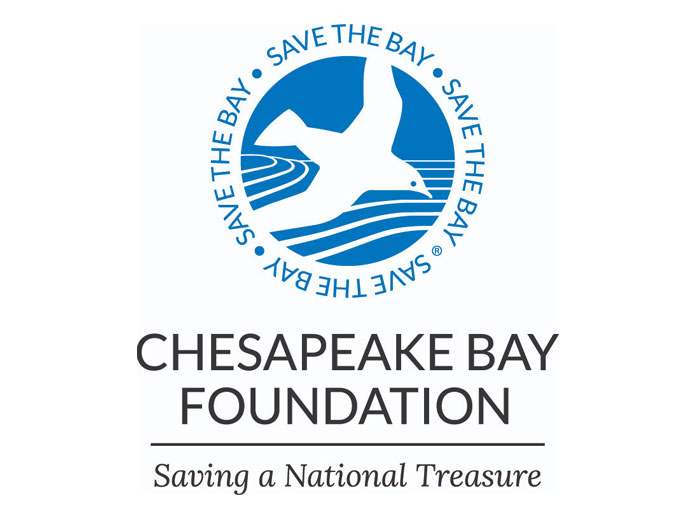The Chesapeake Bay Foundation’s Clagett Farm Donates More Than 10 Tons of Fresh Produce to Maryland Food Banks in 2022
January 2, 2023 | 4 min to read

The Chesapeake Bay Foundation’s (CBF) Clagett Farm donated more than 23,000 pounds of fresh, organic produce to Maryland food banks this year.
The donated vegetables and fruit ranging from strawberries and summer squash to green peppers and tomatoes were worth an estimated $330,000. The weight total surpassed 2021’s donation of 17,000 pounds of produce.
Each year Clagett Farm, which uses regenerative agriculture farming methods, grows food for its Community Supported Agriculture (CSA) customers and local food banks at its 238-acre farm in Upper Marlboro, Maryland. The food bank donations were about one third of the 75,000 pounds of produce grown by Clagett staff this year.
The donations were primarily provided to Shabach! Ministries in Landover and Prince George’s Food Equity Council’s Food Rescue Program.
“We are so grateful for the produce Clagett Farm has donated to Prince George’s County Food Rescue and the recipient food pantries we serve,” said Julia Groenfeldt, program manager for Prince George’s Food Equity Council. “Since the pandemic, Prince George’s County has continued to experience elevated rates of food insecurity–causing financial and capacity strains on community food pantries that have been a lifeline for so many food-insecure individuals and families. These donations have been an incredible gift for these organizations that, unfortunately, often struggle to source high-quality local produce for their clients and communities they serve.”
From July 2021 to Sept. 2022, Clagett Farm donated 10,330 pounds of produce to Prince George’s County Food Rescue, which amounts to about 8,600 meals for community members. Clagett staff typically transfer the donations to the food banks the day after the produce is picked to maximize freshness and nutritional value.
“I serve everyone in the community and what I’ve seen recently is a decline in quality of food for the seniors in our community,” said Gwen Pope, the manager of the food and clothing pantry at Shabach! Ministries. “They’re not able to get quality food because of the cost. Working with Clagett Farm we’ve been able to channel quality, organic food to seniors to give them a better quality of life. And they know the difference. Most of them were raised on farms, they know what good food is and isn’t. They continually come back to us and ask–’where are you getting this produce from?’ They’re so grateful.”
Pope added that her clients are often surprised to hear the produce is grown in Upper Marlboro, near where they live. She said with the Clagett donations, they’re able to serve about 250 clients each month.
Clagett’s CSA program also served about 300 families this year with weekly fresh produce. Most of the produce was grown on just 20 acres of the farm, which demonstrates how healthy soil and proper land management can produce bountiful returns.
“It was a tremendous year for Clagett Farm,” said Jared Planz, CBF’s Vegetable Production Manager. “We work to demonstrate how farmers can grow food for hundreds of families while also improving the environment. We believe these practices will be adopted by more farmers to support their community, fight climate change, and improve the health of the Chesapeake Bay.”
Clagett’s regenerative agriculture practices include using cover crops to fix nutrients into the soil that later benefit crop growth. The farm rotationally grazes sheep and cattle in grass fields to provide the animals with food and the fields with natural fertilizer in the form of manure. And Clagett staff grow a diverse array of fruits and vegetables to attract different pollinators and beneficial microbes to the soil.
All these practices help Clagett limit artificial fertilizer and pesticide use, which produces a healthier environment and better food. The practices also mitigate climate change by trapping more carbon in soil and reduce soil loss because healthy soil filled with organic matter prevents runoff. By selling the produce to CSA customers and distributing it to local food banks, Clagett’s operations are helping reduce transportation emissions caused by shipping produce from distant locations to customers. Clagett also sells grass-fed beef and lamb to CSA customers and online.
In addition, the farm is an integral part of watershed-wide restoration and education efforts. CBF uses the farm to teach other farmers about regenerative agriculture and research new farming techniques aimed at improving water quality. This past year, Clagett staff and volunteers raised 11,000 tree saplings in its tree nursery, of which 4,000 were planted at restoration projects in Maryland.
Clagett Farm staff also hosted dozens of volunteer groups from schools, businesses, and community organizations at the farm. Clagett volunteers help pot trees, tend vegetable fields, and get an opportunity to learn about regenerative agriculture.
Individuals interested in volunteering at Clagett Farm can sign up at cbf.org/volunteer.
